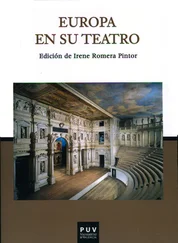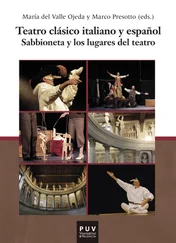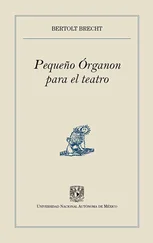Thomas Ligotti
Teatro Grottesco
PRAISE FOR THOMAS LIGOTTI
‘Thomas Ligotti is an absolute master of supernatural horror and weird fiction, and is a true original. He pursues his unique vision with admirable honesty and rigorousness and conveys it in prose as powerfully evocative as any writer in the field. I’d say he might just be a genius.’ Ramsey Campbell
‘Ligotti is wonderfully original; he has a dark vision of a new and special kind, a vision that no one had before him.’ Interzone
‘[Ligotti’s] is a unique voice, which speaks with a profound elegance — and a precious seriousness — of matters which few other literary voices have ever touched — Ligotti is old-fashioned in the very best sense of the term and there is nothing dated about his work, which is unmistakably contemporary.’ Brian Stableford in Horror, Ghost & Gothic Writers
‘Ligotti gave me the first genuine frisson — in the literal sense of the term — that I had received in years. His work made me realize why I had become a student of weird fiction to begin with — it was to experience that indescribable sensation of being unnerved .’ S. T. Joshi, author of The Modern Weird Tale , in Horror: Another 100 Best Books
‘Ligotti is arguably the pre-eminent living writer of horror fiction.’ Matt Cardin (in The Thomas Ligotti Reader )
‘ Songs of a Dead Dreamer is full of inexplicable and alarming delights… Put this volume on the shelf right between H. P. Lovecraft and Edgar Allan Poe. Where it belongs.’ Michael Swanwick, The Washington Post
‘ Grimscribe confirms [Ligotti] as an accomplished conjuror of nightmares in the tradition of H. P. Lovecraft.’ The Times
‘In Grimscribe Ligotti manages to write that secret book, presenting us with stories that are paradoxically beautiful and horrific.’ San Francisco Chronicle
‘The most disturbing terror comes from within, springs unexpectedly from bland or half-formed memories of the past. This is the terror that Ligotti cultivates in the richly evocative tales of Noctuary. ’ Booklist
‘ My Work Is Not Yet Done displays a Thomas Ligotti at the height of his form — in imaginative range, in verve of style and precision of language, and in cumulative power and intensity.’ S. T. Joshi, Necrofile
ABOUT THE AUTHOR
Thomas Ligotti was born in Detroit in 1953 and grew up in the nearby suburb of Grosse Pointe Woods. He graduated from Wayne State University in 1978. From 1979 to 2001, Ligotti worked for a reference book publisher in the Detroit area, serving as an editor on such titles as Twentieth-Century Literary Criticism and Contemporary Authors . His first collection of stories, Songs of a Dead Dreamer , was published in 1986, with an expanded version issued three years later. Other collections include Grim-scribe (1991), Noctuary (1994), and My Work Is Not Yet Done (2002).
Ligotti is the recipient of several awards, including the Horror Writers Association Bram Stoker award for his omnibus collection The Nightmare Factory (1996) and short novel My Work Is Not Yet Done . He has also written a nonfiction book, The Conspiracy Against the Human Race: A Short Life of Horror , which comprises an excursion through the darker byways of literature, philosophy and psychology. A short film of Ligotti’s story The Frolic was completed in 2006 and is scheduled to appear as a DVD. In addition, through an agreement with Fox Studios’ subsidiary Fox Atomic, a graphic novel based on his works was released in 2007. For more information visit: http://www.ligotti.net
We were living in a rented house, neither the first nor the last of a long succession of such places that the family inhabited throughout my childhood years. It was shortly after we had moved into this particular house that my father preached to us his philosophy of ‘rented living.’ He explained that it was not possible to live in any other way and that attempting to do so was the worst form of delusion. ‘We must actively embrace the reality of non-ownership ,’ he told my mother, my sister and me, towering over us and gesturing with his heavy arms as we sat together on a rented sofa in our rented house. ‘Nothing belongs to us. Everything is something that is rented out. Our very heads are filled with rented ideas passed on from one generation to the next. Wherever your thoughts finally settle is the same place that the thoughts of countless other persons have settled and have left their impression, just as the backsides of other persons have left their impression on that sofa where you are now sitting. We live in a world where every surface, every opinion or passion, everything altogether is tainted by the bodies and minds of strangers. Cooties — intellectual cooties and physical cooties from other people — are crawling all around us and all over us at all times. There is no escaping this fact.’
Nevertheless, it was precisely this fact that my father seemed most intent on escaping during the time we spent in that house. It was an especially cootie-ridden residence in a bad neighborhood that bordered on an even worse neighborhood. The place was also slightly haunted, which was more or less the norm for the habitations my father chose to rent. Several times a year, in fact, we packed up at one place and settled into another, always keeping a considerable distance between our locations, or relocations. And every time we entered one of our newly rented houses for the first time, my father would declaim that this was a place where he could ‘really get something accomplished.’ Soon afterward, he would begin spending more and more time in the basement of the house, sometimes living down there for weeks on end. The rest of us were banned from any intrusion on my father’s lower territories unless we had been explicitly invited to participate in some project of his. Most of the time I was the only available subject, since my mother and sister were often away on one of their ‘trips,’ the nature of which I was never informed of and seldom heard anything about upon their return. My father referred to these absences on the part of my mother and sister as ‘unknown sabbaticals’ by way of disguising his ignorance or complete lack of interest in their jaunts. None of this is to protest that I minded being left so much to myself. (Least of all did I miss my mother and her European cigarettes fouling the atmosphere around the house.) Like the rest of the family, I was adept at finding ways to occupy myself in some wholly passionate direction, never mind whether or not my passion was a rented one.
One evening in late autumn I was upstairs in my bedroom preparing myself for just such an escapade when the doorbell rang. This was, to say the least, an uncommon event for our household. At the time, my mother and sister were away on one of their sabbaticals, and my father had not emerged from his basement for many days. Thus, it seemed up to me to answer the startling sound of the doorbell, which I had not heard since we had moved into the house and could not remember hearing in any of the other rented houses in which I spent my childhood. (For some reason I had always believed that my father disconnected all the doorbells as soon as we relocated to a newly rented house.) I moved hesitantly, hoping the intruder or intruders would be gone by the time I arrived at the door. The doorbell rang again. Fortunately, and incredibly, my father had come up from the basement. I was standing in the shadows at the top of the stairs when I saw his massive form moving across the living room, stripping himself of a dirty lab coat and throwing it into a corner before he reached the front door. Naturally I thought that my father was expecting this visitor, who perhaps had something to do with his work in the basement. However, this was obviously not the case, at least as far as I could tell from my eavesdropping at the top of the stairs.
Читать дальше












